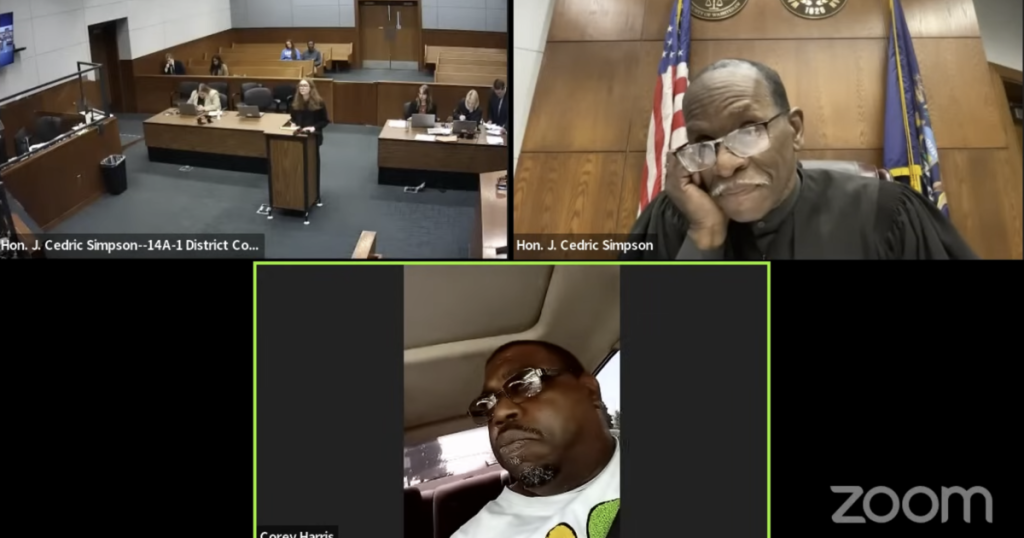A Michigan man, Corey Harris, was ordered to turn himself in by a judge during a virtual court hearing after his camera showed him actively driving under a suspended license. The incident occurred during a hearing on May 15 for charges related to an earlier arrest in Pittsfield Township, just south of Ann Arbor. Video footage from the hearing captured Harris behind the wheel of a moving vehicle, in violation of Michigan laws prohibiting the use of electronic devices while driving.
During the Zoom hearing, Judge J. Cedric Simpson immediately questioned Harris about whether he was driving. Harris responded that he was pulling into his doctor’s office and would be parking shortly. As Harris continued to drive while on camera, Judge Simpson expressed surprise and confusion at the situation, realizing that Harris did not have a valid driver’s license but was operating a vehicle. In response to the discovery, Simpson revoked Harris’s bond and ordered him to turn himself in at the Washtenaw County jail by 6 p.m. that day, warning of a bench warrant with no bond if Harris failed to comply.
Harris remained on camera with a shocked expression as lawyers confirmed to Judge Simpson that he had openly admitted to driving without a valid license during the hearing. Despite his disbelief, Harris followed the judge’s instructions and turned himself in at the county jail. He was released from custody two days later and is scheduled to appear in court again on June 5 for the charges related to his suspended license and other offenses. The incident served as a cautionary tale about the consequences of reckless behavior and disregard for the law.
The virtual court hearing highlighted the challenges and complexities of conducting legal proceedings remotely, especially when participants engage in illegal activities during the process. The use of video conferencing technology such as Zoom has become increasingly common in the wake of the COVID-19 pandemic, allowing for safer and more efficient court hearings. However, as demonstrated in this case, the use of such technology can also reveal unexpected behavior and prompt necessary interventions by judges to uphold the rule of law.
Judge Simpson’s swift and decisive action in response to Harris’s violation of his bond conditions showcased the importance of accountability and adherence to court orders. By revoking Harris’s bond and requiring him to turn himself in, the judge sent a clear message that actions have consequences, regardless of the setting in which they occur. The incident served as a reminder of the need for vigilance and compliance with legal requirements, even in virtual forums where individuals may feel less restrained by traditional norms of conduct.
In conclusion, Corey Harris’s virtual court hearing in Michigan shed light on the intersection of technology and the law, as well as the consequences of reckless behavior in a virtual setting. The incident underscored the importance of accountability and compliance with legal requirements, even when participating in remote court hearings. Judge Simpson’s actions in response to Harris’s violation served as a reminder of the need for diligence and adherence to the rule of law, regardless of the circumstances. Harris’s experience serves as a cautionary tale for others about the potential repercussions of irresponsible behavior, both in person and online.


